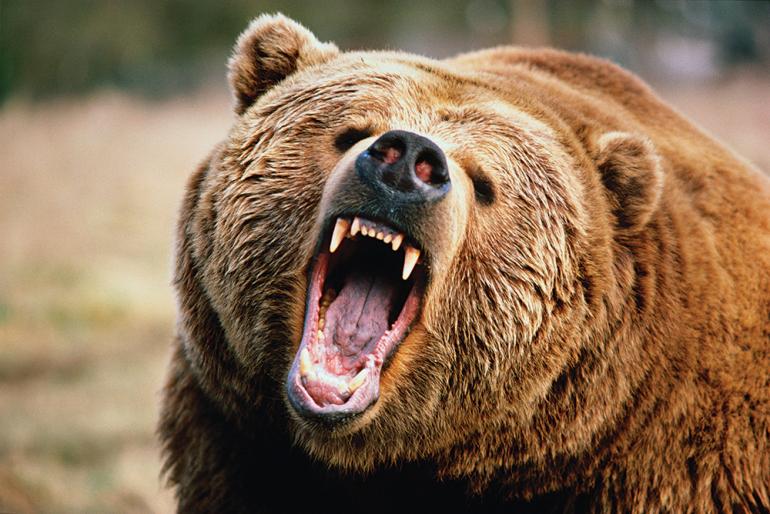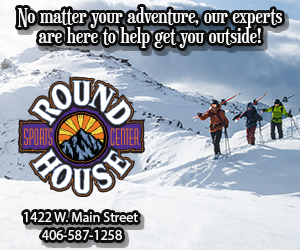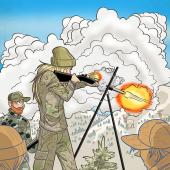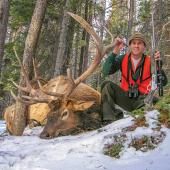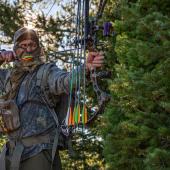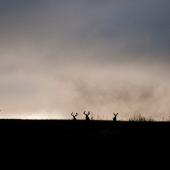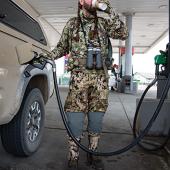A Bad Day in Bear Country
On October 1, 2016, Todd Orr was attacked by a grizzly bear—twice.
This is his story.
It was an early-fall morning as I began my hike up into the high country of southwest Montana. Three miles in, I spotted a sow grizzly and two cubs. She saw me as well and ran west with her cubs, out of sight over a ridge. I waited about 30 seconds before deciding I could safely continue eastward, in the opposite direction.
A few steps later, a noise over my left shoulder caught my attention. Turning, I saw the sow breaking over the ridge at about 40 yards, heading directly toward me. It was nothing like the slow, rambling gait of the overweight, trained bears in the movies. This was the real deal. She was in a full charge with ears laid back and coming fast and low to the ground.
Instinctively, I pulled the bear spray from my chest holster, slipped out the safety clip, and yelled out so the bear knew I was human and would hopefully stop or turn back. No such luck. She was blazing through the waist-high grass with a speed I had never imagined. Within just a couple seconds, she was nearly on me. I smashed the trigger down hard on the bear spray and gave her a full blast in the face at about 30 feet. Her speed and momentum carried her through the orange cloud of pepper mist and onto me.
I turned away and threw myself to the ground, shoving my face in the dirt. I wrapped my arms around the back of my neck and locked my hands for protection. The bear was immediately on top of me, biting my arms, shoulders, and back. I could hear the crushing and tearing of the muscle as her long canine teeth buried deep into my right arm with each bite. After only a few seconds, but what seemed an eternity, she disappeared, coughing as a result of the bear spray.
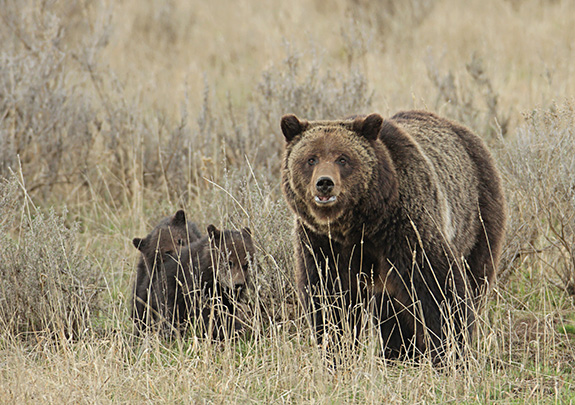
Stunned, I carefully picked myself up from the ground. I was lucky to be alive and to survive a grizzly-bear attack! The injuries were severe but not life-threatening, and isolated mostly to my arms, shoulder, and upper back. Quite assured the bear was gone, I headed back down toward the trailhead and my truck three miles below. I kept a steady pace, only slowing for a quick look at my injuries. My backpack had taken the brunt of the attack, but I had still sustained numerous deep puncture wounds on my right arm and shoulder. The wounds were bleeding through two layers of clothing, but the flow appeared to be slowing. I knew I could hike the distance to the truck, and thanked God for getting me through this alive. I really wanted to keep moving and put distance between the bear and me before stopping to address any wounds that needed attention.
Within minutes, I felt clear of the danger and my adrenaline rush was subsiding. Then a sudden noise from behind turned me around—the grizzly was bearing down on me a second time, and already within ten feet. It happened so quickly that I had no time to use the bear spray again or reach for my pistol. I again turned away as the bear knocked me to the ground.
I couldn’t believe this was happening a second time! I was so lucky to survive the first attack, and now I questioned if I would survive another.
Again, I protected the back of my neck and sides of my head with my hands and arms, and kept tight against the ground to protect my face, eyes, and soft vital areas. The bear slammed down on top of me and ferociously bit my shoulder and arms again, but with much more aggression than before. The force of each bite was like a sledgehammer with teeth. One bite on my left forearm went deep, and I heard the crunch of bone breaking. My hand instantly went numb, and my wrist and fingers were limp and useless. The sudden flash of pain made me flinch and gasp for breath. That slight motion and sound triggered a frenzy of additional bites to my shoulder and upper back. I knew it was vital to avoid any further movement, or the bear was going to tear me to pieces. I focused my concentration to ignore the pain, and remained motionless, face down on the ground. More bites and claw swats to my head opened a five-inch gash above my right ear, nearly scalping me. The blood gushed over my face and into my eyes, blinding me. I still didn’t move or make a sound. My concentration, will to survive, and adrenaline rush had completely blocked out the pain, but I could feel and hear the pressure and tearing of each bite as the bear’s teeth sunk deep into my muscles. She would lift me up off the ground and slam me back down, only to bite again.
I truly thought that this was the end. I feared the bear would eventually strike an artery in my neck and I would bleed out on the trail. Or she would flip me over and get to my face, eyes, or throat. But I knew that any movement would prolong the attack, so I laid motionless, hoping it would end. I repeatedly told myself that she would eventually leave to check on her cub’s safety, if I could only hold on a little longer.
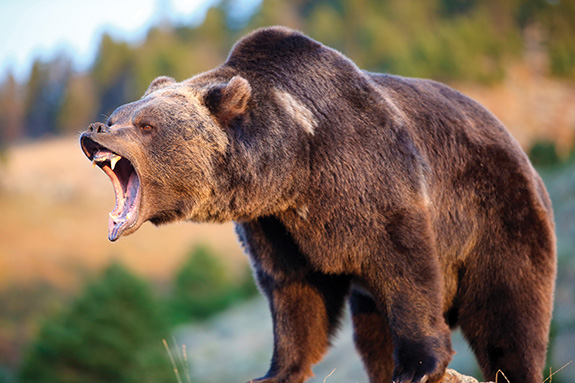
The bear suddenly stopped her attack and just stood on top of me. I will never forgot that brief moment of dead silence with just the sound of her breathing and sniffing. I could feel and hear her breath on the back of my neck, just inches away from my spine. I even tried to hold my breath, afraid she would attack again if I moved or made a noise. Her three-inch claws sunk into my lower back just below my backpack, where she stood, pinning me to the ground. The terrible, pungent odor she emitted almost made me gag. For 30 seconds, she stood there motionless but crushing me. My chest was smashed into the ground and my face pressed into the rocky dirt of the trail.
When would the next onslaught of biting begin, I wondered. But I still didn’t move, my breathing deliberately faint.
And then she was gone. That enormous weight had been lifted from my body. I wanted to take in a deep breath of fresh air, but I didn’t know where the bear was. I wondered if she had left to check on her cubs, or was standing there, just ten feet away, watching me. I waited another ten seconds, listening. Nothing.
I feared I would never survive a third attack. I needed to protect my life. My bear spray had gone flying during the fray, so my pistol was the only defense. Staying in position on the ground, I slowly moved my right arm from behind my head and reached under my chest for the pistol. Nothing! It was gone. It had been ripped from my body during the attack, and now I was defenseless.
I carefully wiped the blood from each eye, and with much worry and some hesitation, I slowly raised my head to look around, still fearing the bear would be close and attack again. Almost to my surprise, she was gone. The holster and pistol were lying ten feet to my side. The bear’s attack had broken the webbing straps and torn the holster from my body.
With the bear apparently gone, I dove for the pistol and thumbed back the hammer, nervously looking around. Still no bear. I so hoped she was gone for good this time. I quickly picked up my scattered gear, grabbed the bear spray, and moved down the trail again toward the trailhead. I couldn’t believe I had survived a double grizzly attack!
Blood was still dripping from my head wound and off both elbows, and my shirt was blood-soaked to the waist and into my pants. But a quick assessment assured me the bleeding was not life-threatening and that I could survive the 45-minute hike to the truck.
I continued down the trail, wanting to distance myself from the bear. I kept my left arm pulled in tight against my body to minimize movement and prevent further injury to the shredded muscle, severed tendons, and crushed nerves and bone. I held my pistol tucked between my arm and chest, for easy access if need be. The bear spray was in my right hand with the safety clip out.
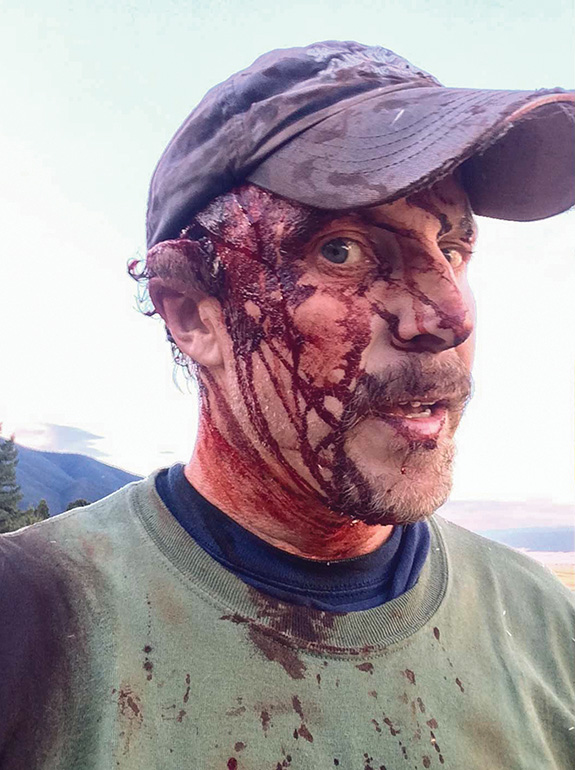
Twice I paused to assess my wounds. The slow rate of bleeding was still acceptable, so I didn’t bother with any bandaging. If needed, I could administer first aid at the truck.
Forty-five minutes later, I safely reached the trailhead and my vehicle. It was only 8am, and I was concerned for the safety of bow hunters that may show up for the weekend and head into the same area. I attempted to write a warning note and post it on the bulletin board at the trailhead. Unfortunately, my injured arm was useless, and the note would be illegible given all the blood dripping from my other hand.
Having reached my vehicle and with the bleeding slowed, I now felt completely safe and relieved. I decided to take a few seconds to record the moment to share with my hunting buddies. I snapped a couple quick photos and a video of my wounds, laid some jackets over the truck seat to capture some of the blood, and headed for town and the hospital, about a half-hour away. I stopped a rancher alongside the road and asked him to make a call to the hospital, informing them that I was in route.
Twenty minutes later, a doctor, nurse, and local sheriff’s officer met me at the emergency entrance. I had to ask the officer for assistance in opening the door, putting the truck in park, and unbuckling my seat belt. My left arm was useless and the deep tear in the deltoid of my right shoulder, along with a dozen puncture wounds to my bicep and triceps, were making it nearly impossible to lift that arm as well.
Once inside, x-rays revealed a broken ulna bone in my forearm. Most of the other injuries were arm, shoulder, and upper-back punctures and tears from the bear’s biting, and took six hours to stitch closed. The four puncture holes in the right side just above my hip reminded me how lucky I was that the bear only bit and released, and that her canine teeth didn’t tear completely through the soft stomach tissue.
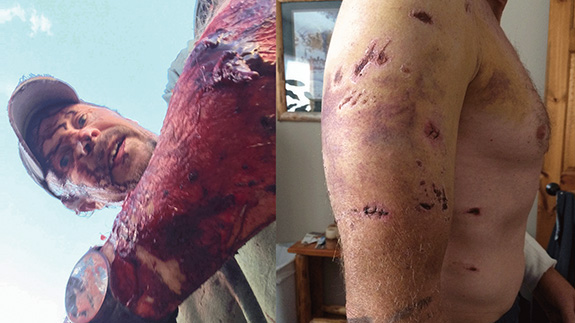
Two tendons had been severed in my left forearm, requiring surgery to repair the shredded muscle and re-attach the tendons. Numerous nerves had been damaged as well. I expected many months of physical therapy to get full use of my left arm and hand again. The five-inch gash along the side of my head would leave a nasty scar as well.
October 1, 2016 wasn’t my best day, but I am alive and so thankful to be here to share the story with all of you.

